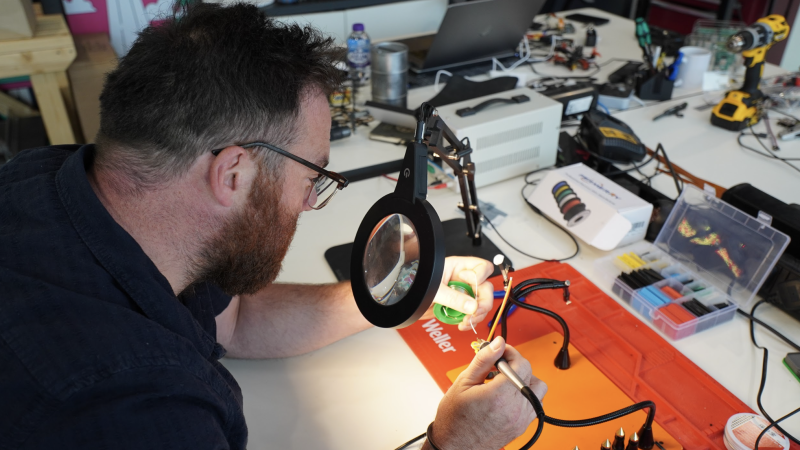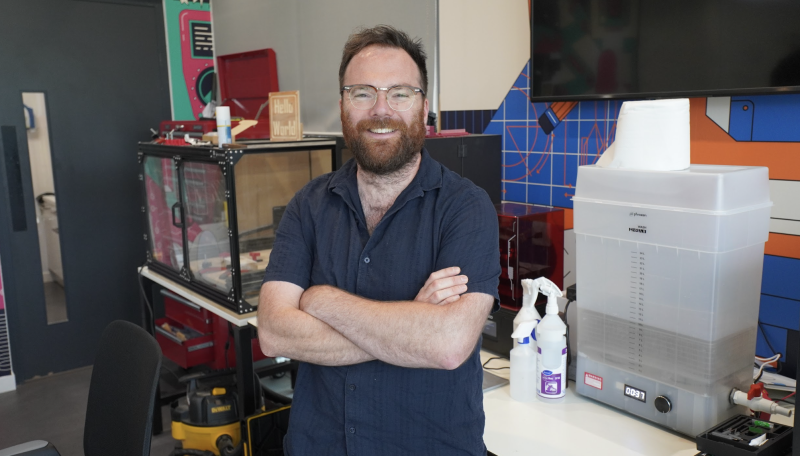What is your history with making?
A lot of people who get into making reckon that they used to take things apart and put them back together when they were kids. Whenever I tried doing that I got told off. Instead, whenever anything broke, it was my job to take it apart and try to work out how to fix it. That way, it wouldn’t matter if I broke it further. I fixed a broken lawnmower for my mum once and was extremely chuffed with myself!
I never did my electronics at school – I still have a scar on my finger from defending myself from a 14-year-old psychopath with a soldering iron – but I got into it a few years ago when I made my first electric guitar effect. It’s a simple device, with only a handful of components, but it’s identical to the vintage Fuzz Face pedal used by Jimi Hendrix, right down to the new old stock transistors. Pretty much anyone can put one of those together, but mine is unique because I made it.

When did you first learn about Raspberry Pi?
Ooh, back before it was available. I was one of the first lot of customers who placed an order for this super-cheap computer back in 2012. Back then they didn’t have the supply chain they do now, so it took ages to arrive, and when it eventually did my attention had moved on, so the Raspberry Pi just sat in a drawer somewhere. I think I still have it.
At the time I was working on a Linux magazine. We’d heard about this $25 computer and thought it would be lovely to make it famous, so we gave the Raspberry Pi its first magazine cover. Without me, this company would be nowhere!
What is your favourite thing you’ve made with Raspberry Pi?
My favourite Raspberry Pi project is still my first one: making an LED flash on and off. I had tried several times to learn computer programming, and never got very far. I can very clearly remember being shown how to write ‘hello world’ in Python by a colleague, beaming from ear to ear as if I was gaining the key to a magic kingdom, but I just didn’t get it. How is writing a script that prints ‘hello world’ any different from typing it in yourself on a word processor? It takes longer, it’s more keystrokes… To this day I think that teaching students to start with ‘hello world’ is counterproductive.
But learning to flash an LED on and off is completely different. If you’ve got a physical example in front of you of what the code is doing, then it’s easy to see how you can go from there to turning a motor on and off, or controlling a robotic arm, or a drone, or an automatic plant watering system.

What future project plans do you have?
After the summer we’ve had, my dream project would probably be a solar-powered laser turret to zap the slugs that have destroyed my pumpkins this year. I don’t want to put poison down for them, but I reckon an automated, AI laser might be enough to make them turn around and leave my allotment alone.







